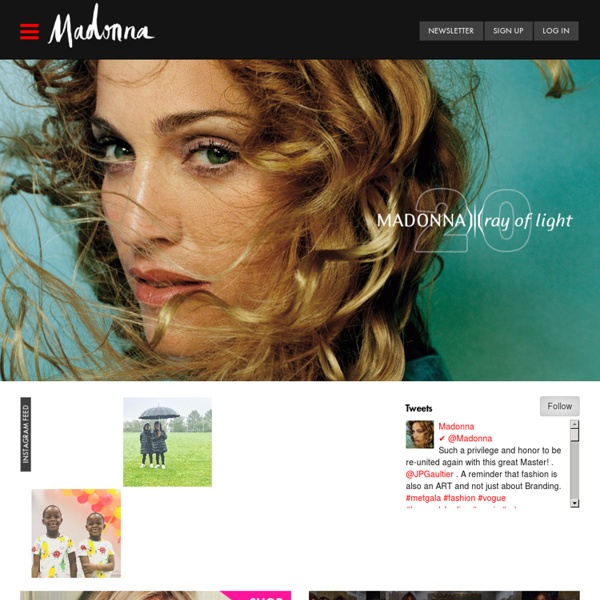



Papier-Highlight: Origami-Lampen zum Selbermachen Ihr Wohnzimmer könnte mal wieder ein neues Highlight gebrauchen? Dann basteln Sie sich eins! Diese Origami-Lampen, entworfen von Hanna Charlotte Erhorn, machen nicht nur ein tolles Licht, sondern auch mächtig Eindruck! Origami-Lampe - einfache Version Diese Lampe besteht aus einem so genannten "Ikosaeder" (Das ist ein Zwanzigflächner aus zwanzig Dreiecken). Das brauchen Sie: Für eine Lampe mit ca. 20 cm Durchmesser benötigt man 10 Blatt Papier á 21 x 21 cm. So geht's: Quadrat in der Mitte falten und wieder öffnen. Eine untere Ecke auf die Mittellinie legen, es entsteht ein Winkel von 30° Falte wieder öffnen und die gegenüber liegende Ecke auf die 30°-Falte legen. Die untere Kante auf den Schnittpunkt der Mittellinie mit der 60°-Falte legen.
Lady Gaga Boletos | Lady Gaga en Concierto y Fechas de Gira I Ticketmaster MX Verdaderamente increíble, de nuevamente la mejor experiencia de mi vida."The Monster Ball " fue increíble, pero nada se le compara a "The Born This Way Ball.El mejor tour hasta el momento. Ella recrea otra manera de hacer conciertos, sus conciertos son mas bien una opera pop, cuenta una historia y cada canción es conforme a la situación que se presente. Adoro que cada tour es muy diferente al pasado, Gaga pone todo su corazón, alma y energía en el escenario. Una artista muy humilde, nunca deja de interactuar con el público y siempre habla que hay que aceptarnos como somos. Si eres fan o no, es realmente una experiencia única e inigualable.
Marea. Rock music Rock music is a genre of popular music that originated as "rock and roll" in the United States in the 1950s, and developed into a range of different styles in the 1960s and later, particularly in the United Kingdom and the United States.[1][2] It has its roots in 1940s' and 1950s' rock and roll, itself heavily influenced by rhythm and blues and country music. Rock music also drew strongly on a number of other genres such as blues and folk, and incorporated influences from jazz, classical and other musical sources. By the late 1960s, referred to as the "golden age"[3] or "classic rock"[1] period, a number of distinct rock music sub-genres had emerged, including hybrids like blues rock, folk rock, country rock, and jazz-rock fusion, many of which contributed to the development of psychedelic rock, which was influenced by the countercultural psychedelic scene. Characteristics[edit] A simple 4/4 drum pattern common in rock music Play Origins[edit] Rock and roll[edit] "In-between years"[edit]
NRJ.COM · ENERGY AROUND THE WORLD Pop La música pop (del inglés pop music, contracción de popular music) es un género de música popular que tuvo su origen a finales de los años 50 como una derivación del rock and roll, en combinación con otros géneros musicales que estaban en boga en aquel momento.[1] [2] Los términos música pop y música popular se usan a menudo de manera indistinta, aunque el segundo tiene un sentido más amplio al dar cabida a otros géneros distintos del pop que se consideren populares. Definición[editar] Michael Jackson, uno de los cantantes pop con mayores ventas de todos los tiempos, apodado «El Rey del Pop».[4] El Diccionario de la lengua española define «pop» como «un cierto tipo de música ligera y popular derivado de estilos musicales negros y de la música folclórica británica», siendo el término procedente del inglés pop, un acortamiento de popular (popular).[5] Influencias y desarrollo[editar] Características[editar] Críticas[editar] Véase también[editar] Referencias[editar] Enlaces externos[editar]
Pop music Pop music (a term that originally derives from an abbreviation of "popular") is a genre of popular music which originated in its modern form in the 1950s, deriving from rock and roll.[1] The terms "popular music" and "pop music" are often used interchangeably, even though the former is a description of music which is popular (and can include any style).[1] So-called "pure pop" music, such as power pop, features all these elements, using electric guitars, drums and bass for instrumentation;[1] in the case of such music, the main goal is usually that of being pleasurable to listen to, rather than having much artistic depth.[1] Pop music is generally thought of as a genre which is commercially recorded and desires to have a mass audience appeal.[1] Definitions[edit] Etymology[edit] The Oxford Dictionary of Music states that the term "pop" refers to music performed by such artists as the Rolling Stones (pictured here in a 2006 performance) Influences and development[edit] Characteristics[edit]
Les Reines del Pop. Music This article is about music as a form of art. For history see articles for History of music and Music history. The creation, performance, significance, and even the definition of music vary according to culture and social context. Music ranges from strictly organized compositions (and their recreation in performance), through improvisational music to aleatoric forms. Music can be divided into genres and subgenres, although the dividing lines and relationships between music genres are often subtle, sometimes open to personal interpretation, and occasionally controversial. Within the arts, music may be classified as a performing art, a fine art, and auditory art. To many people in many cultures, music is an important part of their way of life. Etymology The word derives from Greek μουσική (mousike; "art of the Muses").[4] Music as form of art Jean-Gabriel Ferlan performing at a 2008 concert at the collège-lycée Saint-François Xavier Composition Notation Play Improvisation Theory History